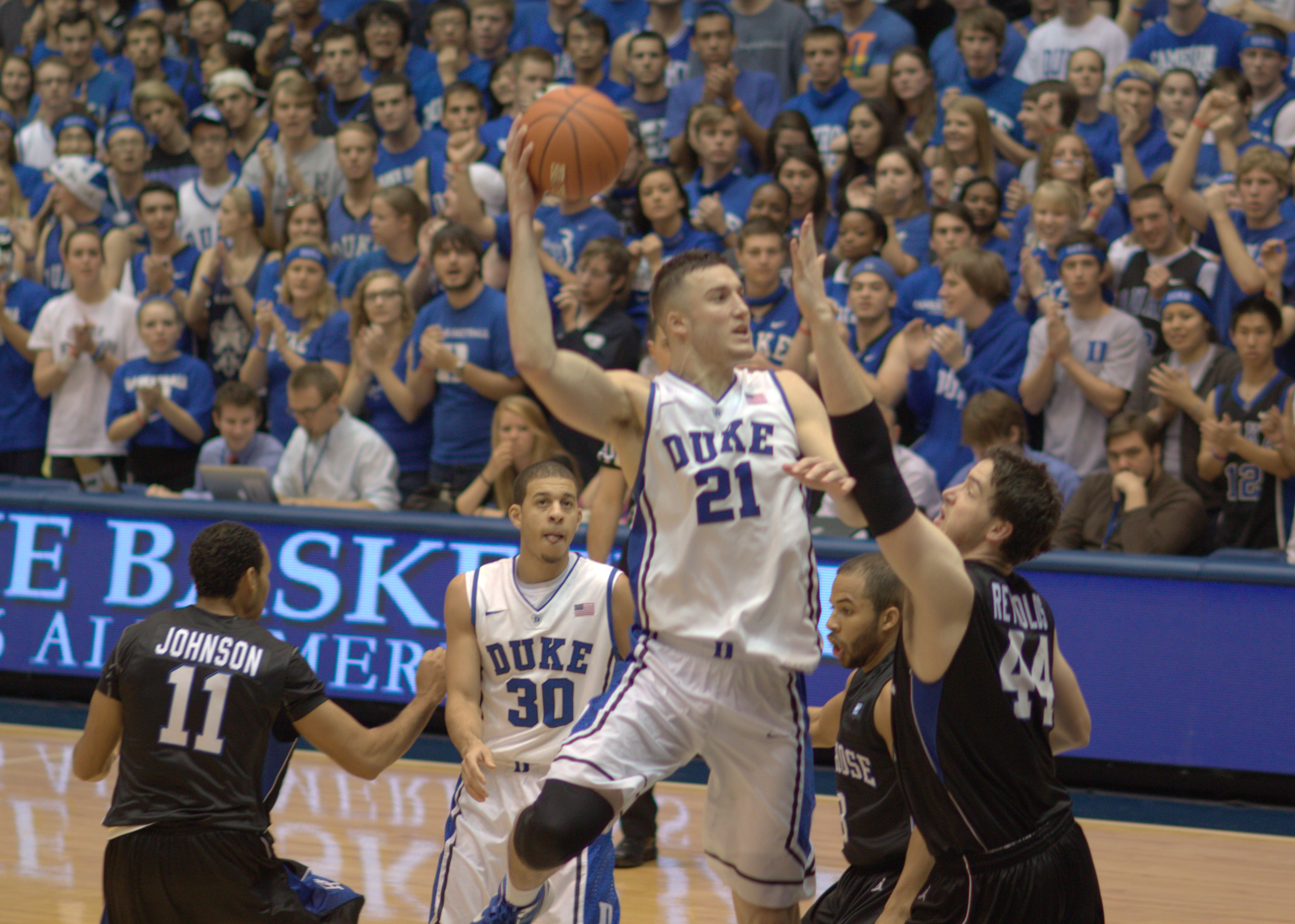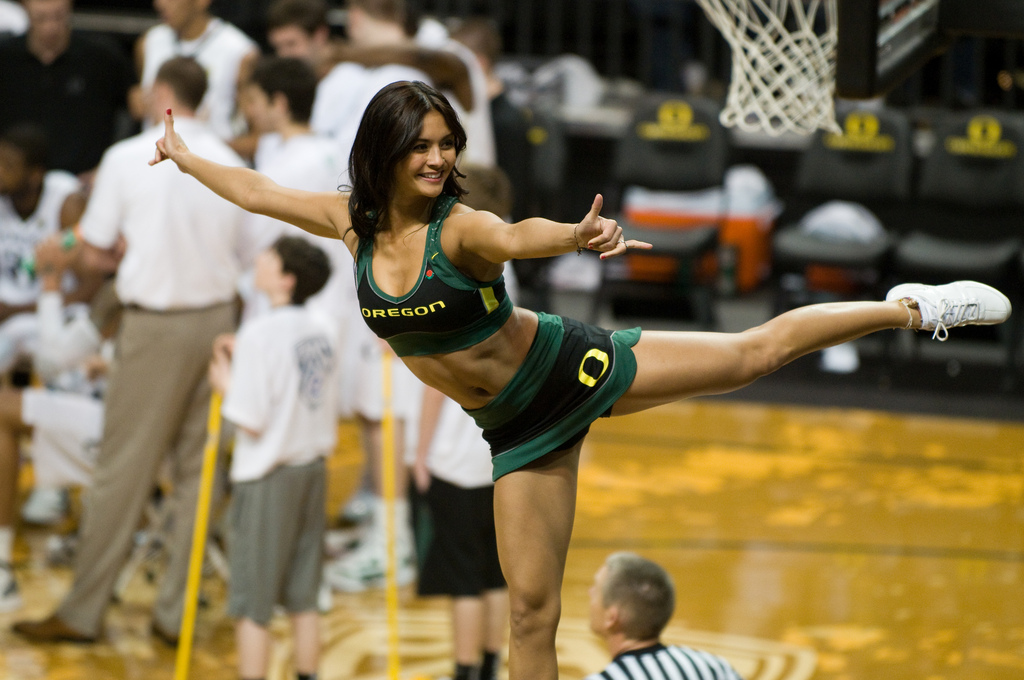Here Are the March Madness Schools You Really Should Bet (but Not Gamble) On
By:
If you're looking to get rich by betting on the NCAA Tournament outcome, the odds are definitely not in your favor. According to the data analysts at FiveThirtyEight, the likelihood of picking every game in the bracket correctly are about one in 1.7 billion.
But, while betting on college hoops doesn't provide a great return on investment, attending one of the universities or colleges competing in this year's tournament offers a better chance of eventually cashing in.
Here's how the 68 schools competing in the tournament shake-out in terms of ROI, according to Payscale.com.
| School | Tournament Seed by Region | PayScale ROI Rank | 20 Year Net ROI |
| UC Berkeley | 4 | 20 | $703,100 |
| Texas A&M | 3 | 39 | $619,800 |
| Duke | 4 | 40 | $619,200 |
| Virginia | 1 | 43 | $615,100 |
| Purdue | 5 | 53 | $591,700 |
| Yale | 12 | 60 | $578,500 |
| Maryland | 5 | 64 | $561,000 |
| Vanderbilt | 11 | 68 | $556,800 |
| Notre Dame | 6 | 75 | $546,600 |
| Michigan | 11 | 79 | $541,500 |
| Texas | 6 | 90 | $522,700 |
| Holy Cross | 16 | 97 | $511,600 |
| Seton Hall | 6 | 134 | $467,000 |
| UConn | 9 | 149 | $449,700 |
| Gonzaga | 11 | 149 | $449,700 |
| Iowa State | 4 | 153 | $447,700 |
| Cincinnati | 9 | 159 | $444,300 |
| Villanova | 2 | 165 | $440,100 |
| Utah | 3 | 171 | $436,600 |
| Texas Tech | 8 | 178 | $429,700 |
| Oklahoma | 2 | 188 | $413,100 |
| Michigan State | 2 | 194 | $409,400 |
| Stony Brook | 13 | 196 | $408,900 |
| Colorado | 8 | 206 | $403,300 |
| Dayton | 7 | 224 | $392,000 |
| Weber State | 15 | 225 | $390,900 |
| Arizona | 6 | 230 | $388,300 |
| USC | 8 | 231 | $387,500 |
| Oregon State | 7 | 235 | $384,100 |
| West Virginia | 3 | 257 | $373,500 |
| Buffalo | 14 | 289 | $356,100 |
| Fairleigh Dickinson | 16 | 290 | $356,000 |
| Iowa | 7 | 300 | $349,000 |
| Pittsburgh | 10 | 310 | $342,200 |
| Wisconsin | 7 | 320 | $332,900 |
| Fresno State | 14 | 328 | $329,700 |
| Temple | 10 | 342 | $325,000 |
| Tulsa | 11 | 347 | $322,900 |
| Providence | 9 | 374 | $311,200 |
| North Carolina | 1 | 388 | $304,300 |
| Syracuse | 10 | 389 | $304,200 |
| Kentucky | 4 | 395 | $303,100 |
| Indiana | 5 | 397 | $303,000 |
| Chattanooga | 12 | 426 | $294,000 |
| South Dakota State | 12 | 441 | $290,100 |
| Wichita State | 11 | 483 | $277,200 |
| Kansas | 1 | 485 | $276,800 |
| Southern University and A&M College | 16 | 493 | $273,700 |
| University of Oregon | 1 | 497 | $272,400 |
| Cal State Bakersfield | 15 | 500 | $271,800 |
| Baylor | 5 | 564 | $251,600 |
| Miami (FL) | 3 | 617 | $231,300 |
| Hawaii | 13 | 640 | $225,300 |
| Northern Iowa | 11 | 703 | $206,200 |
| VCU | 10 | 718 | $201,100 |
| Butler | 9 | 762 | $186,200 |
| Hampton | 16 | 766 | $185,300 |
| Saint Joseph's | 8 | 785 | $177,900 |
| Stephen F. Austin | 14 | 830 | $166,200 |
| Xavier | 2 | 834 | $165,100 |
| Little Rock | 12 | 855 | $159,000 |
| Middle Tennessee | 15 | 901 | $147,800 |
| UNC Wilmington | 13 | 996 | $118,000 |
| Green Bay | 14 | 1126 | $48,200 |
| UNC Asheville | 15 | n/a | n/a |
| Austin Peay | 16 | n/a | n/a |
| FGCU | 16 | n/a | n/a |
| Iona | 13 | n/a | n/a |
PayScale's Report claims to identify the best value colleges. The annual rankings compare the 20 year net return on investment for many colleges and universities across the nation by estimating the amount that a given school's graduate is projected to earn over 20 years, and then subtracting the base pay that they could have expected with only a high school degree, as well as the estimated price they paid for their degree.
Who wins March Madness for ROI?
The University of Virginia, Texas A&M University, Duke University, and UC Berkeley all rank among the best values for 2016 March Madness participants. Duke graduates can expect a return of around $619,000 over 20 years, according to PayScale, as can Texas A&M degree holders.
 Flickr / Jarrett Campbell - flickr.com
Flickr / Jarrett Campbell - flickr.com
The big winner, however, is UC Berkeley. Students from this school are estimated to rake in over $700,000 from the time and money they invest gaining their degree — good enough to bring the university to number 20 on PayScale's overall report. (The top ranked school overall, Harvey Mudd College, has a listed ROI of almost $1 million.)
The College of Holy Cross in Massachusetts also has reason to celebrate. Despite being one of the lower ranked schools entering the tournament at 16th in the West region, Holy Cross makes up for their low seed in return on investment. They come in at 13th overall among the contenders, with an ROI estimate of just over $511,000.
ROI gives us a very different Final Four bracket.
Top seed Kansas drops all the way to 48th on the ROI rankings, coming in at only $276,800 in gains after removing what Jayhawks pay for their degree, and what they could have expected to earn without attending college at all.
Most of the other top contenders don't fair well either. Top seed in the East region, the University of North Carolina at Chapel Hill, comes in 41st with an ROI of $304,300. University of Oregon, the top seed for the West region, ranks even lower at number 50 with an ROI of $272,400.
 Flickr / Beaverbasketball - flickr.com
Flickr / Beaverbasketball - flickr.com
But is ROI accurate... or important?
Calculating ROI is challenging for one main reason — the cost to attend college varies greatly. It's been noted that few students actually pay the "sticker price" of a given university because of financial aid, merit scholarships, or other adjustments. Paying more than the average student will cause your ROI will go down; securing more scholarships and grants will boost it. Luckily, because schools are now required to provide access to net price calculators, according to PayScale's report, finding out what higher education might actually cost you isn't as impossible as it seems.
Whether return on investment is the most important factor in assessing the value of a given college is subjective. Education can provide far more than a simple launching pad for financial success. But with student loan debt in the U.S. reaching record levels, it is important to consider what you want your post-graduation life to be like and if the college you're considering is the best choice to make that happen.
